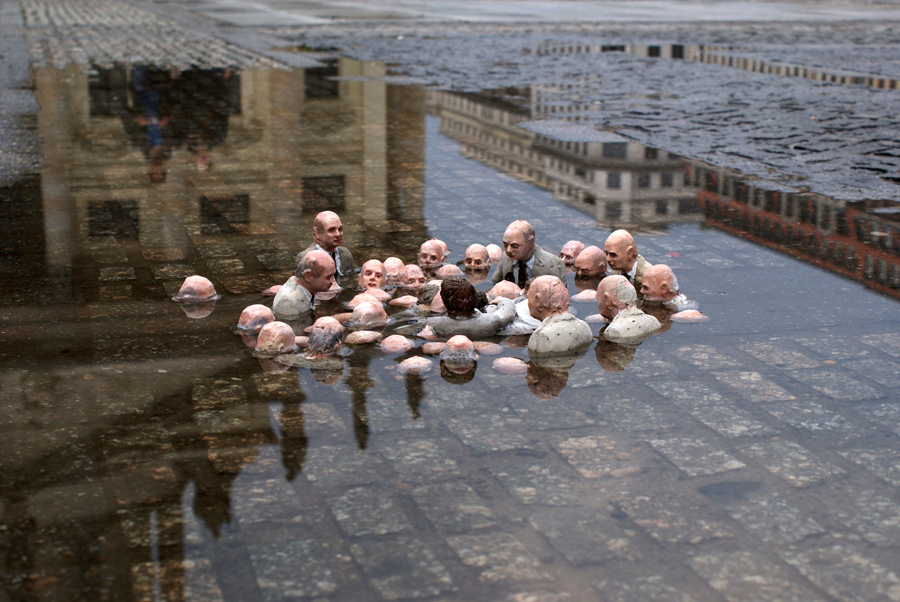Sustainability: doing nothing is a perfect failure
The first step anyone should take on the path towards sustainability is to recognize the forces driving priorities. To state the obvious, materiality simply matters, especially when part of the duty list is to protect others. Once the problems are identified, focus and energy can be articulated towards solutions.
Clearly, controversies and polemics are numerous. Some says there is no need for paternalistic and moral considerations. Others complain about empty promises and the slowness of initiatives.
In today’s world of exponential technological innovation, I believe that emotional intelligence and empathy is key. Barbarous practices that used to be normal for most of history until the 19th century are not socially acceptable anymore. Morgan Housel stated that “while misery was limiting mankind sympathy towards others, progress, better health, more comfortable living conditions,.. meant less time worrying around our immediate surroundings, which opened the doors up to empathizing with how others were doing”1.
The pandemic cannot be controlled until it’s controlled everywhere.
Today, movement restrictions and social distancing ambitions are designed to flatten the curve of the pandemic. While I may sometimes wonder about the efficiency of wearing a mask to protect myself, I end up considering my question irrelevant. The point is to protect people around me, not to protect myself. Whatever my “risk appetite”, whatever my personal lifestyle, I can’t play with others’ lives. The pandemic cannot be controlled until it’s controlled everywhere. Collaboration, solidarity and assistance are in everyone’s personal interest: Nothing other than concrete empathy in action.
On the political scene, agnotology2 is too often obvious. This is not short-sightedness, this is blindness. Trust in science and reliance on experts should be paramount. Yes, this is more easily said than done in the real world when every decision needs to be properly balanced. My ambition is not to blame, judge or patronise. Political statesmanship is, for me, centred around a vision that today’s world has moved a little closer towards empathy and an understanding of others.
Igniting controversies is an easy task when associated with sophisms. It’s also a cheap way to go viral and rack up social media reactions. A lack of completeness and mistakes are part of the long journey towards adaptation and mitigation, but along the way, commitment and a sound roadmap will bring the desired changes closer to our reach.
The argument that the ‘good old days’ should be our destiny is a fallacy. From my eyes, sleeping ‘beauty’ looks like a mummy and I can’t subscribe to a vision of the world bringing us back towards the Stone Age.

Politicians that are still lost in translation should look at the provocative sculpture by the Spanish street artist Isacc Cordal called “politicians discussing global warming”, a stark reminder of our collective difficulties to act.
Scepticism is everywhere. In political debates, in the financial industry and among peers and colleagues. For me, perfection is the enemy of progress. I do not want anyone to duplicate my personal beliefs but I can only try to act as a leader of change while being humble and transparent towards our journey for resilience.
The window of time available is short and the clock is ticking but the pandemic has also demonstrated that transformative changes are possible when they must be made. The decisions and level of actions we take now will have profound consequences for good or ill, for all species, including ours. It’s now time for a shift away from ‘business as usual’ across a range of our activities. We need to act to promote healthy ecosystems and healthy people. Yes, this is deeply moralizing. But is done on purpose.
COVID-19 has also exposed and exacerbated inequalities between countries and within countries. As of today, New Zealand stands out as the most successful country while addressing the covid-19 crisis. Reasons for the success are multiple: credible and consistent government measures in the early days of the contamination outbreak, effective communication by the authorities, high level of trust and reliance on science to make decisions, efficient mass testing and tracing, successful buy-in by the public, high level of trust of the government and solidarity inside the population… For sure specificities like geographical considerations are also supportive (relatively isolated island, low density of population,..), but in essence New Zealand, its population and its government stand out as a model for the post pandemic world. “A greener and knowledge-based [society], with even greater equality, trust and solidarity.”3
Nothing we do will be a perfect action, but doing nothing is a perfect failure.
The trick in all of this is that we cannot wait until we identify the perfect action to take. In order to make progress we have to be willing to accept imperfect action as a way forward. “Nothing we do will be a perfect action, but doing nothing is a perfect failure”4. This is valid for each of us, as a citizen of the world. This is even more valid for me, as a banker and investor. The speed of change will never be to my satisfaction but this will not stop me advocating for and acting in that journey. This is not some sort of feel good exercise, it’s moving towards making good. While I’m convinced that you can’t switch off the funding of fossil fuels without taking the risk of ruining the economy, incentivizing the move towards clean and renewable energy is transforming financial considerations. Banks and bankers are also waking up in their journey towards social purpose, finding their ways to be socially useful.
1 Morgan Housel – “You can see where this is going”
2 Agnotology is defined as the fact that ignorance and doubt could be culturally constructed by special interest groups to suppress the truth about critical issues. See https://my-life.lu/en/the-mother-of-all-disruptive-thematics-sustainability-30501/
3 Joseph Stiglitz – Conquering the great divide
4 Sue Senger on Medium – Why We Need More Role Models To Spark Sustainable Behaviors


 Mortgage
Mortgage Personal loan
Personal loan Savings
Savings